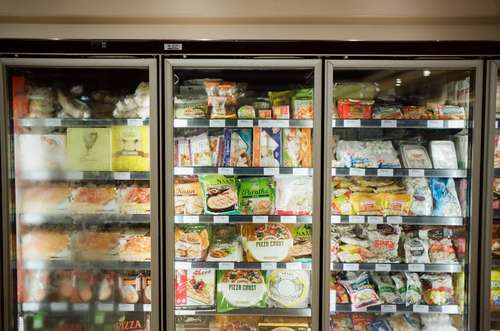This past month, a troubling series of events has unfolded across multiple states as a listeriosis outbreak linked to frozen foods has raised alarms among consumers and health officials alike. Many of us turn to frozen meals and frozen vegetables for convenience, but now there is a reminder to pay closer attention to food safety. The recent recall, driven by contamination fears of Listeria monocytogenes, has prompted both manufacturers and regulatory agencies to act quickly.
It’s hard not to feel a bit apprehensive when labels and warnings start cropping up on products you’ve trusted for years. We all want to be assured that what’s in our freezer is safe to eat, but sometimes even trusted food supplies can be compromised. Public health concerns take center stage as officials scramble to protect the community from this bacterial infection that has the potential to cause severe health risks.
In times like these, understanding the situation around listeriosis and the steps being taken to control the outbreak becomes as critical as checking the expiration date on your frozen foods. Whether you’re a busy parent or someone who relies on frozen meals to get you through a hectic day, keeping informed helps us all make safer choices at the grocery store.
The unfolding scenario serves as a stark reminder that food safety is never a given. Manufacturers, state regulators, and the FDA are all joining forces to ensure that any sign of contamination is swiftly addressed. With a potential link to various frozen food items, including frozen vegetables and ready-made frozen meals, consumers are experiencing a sense of urgency that underscores the importance of reliable food protection systems.
What is Listeriosis and How It Spreads?
For those of you who might be wondering, listeriosis is a serious, sometimes fatal, bacterial infection caused by Listeria monocytogenes. This pathogen is particularly dangerous because it thrives in environments that you wouldn’t typically suspect to harbor bacteria. Even though the outbreak is linked to frozen foods, listeria infection isn’t new to the food safety conversation—it’s been around for a while and often pops up during foodborne illness investigations.
In many ways, the way listeriosis spreads is a silent reminder that contamination isn’t always about visibly spoiled food. It can be likened to an unexpected guest at a party; you might not see it coming until it’s already there. With the current outbreak, the contaminated frozen foods have become the perfect conduit for this potentially severe bacterial infection, showing us that even in the age of advanced food processing, risks still abound.
FDA and Manufacturer Response
The response from government agencies and manufacturers has been both swift and comprehensive. Initially, the FDA issued a series of recalls for various frozen food items suspected of being the source of the contamination. Companies responded by temporarily halting production and working closely with public health experts to pinpoint the exact issue behind the outbreak. There’s a clear message here: when food safety is at stake, every second counts.
Local health departments have also been collaborating with the FDA to track down the outbreak’s origins and to alert the public through consumer alerts and health warnings. Small disruptions like these highlight just how complex and interconnected our food supply chain really is. The manufacturers are taking extra safety precautions not only to recall affected products but also to prevent a future foodborne outbreak through stringent testing and improved quality control measures.
There’s no doubt that these rare moments of crisis put both industry leaders and everyday consumers on high alert. Many are left asking, ‘How did this happen?’ which, in turn, fuels a broader discussion about the need for continuous vigilance in food production.
Symptoms, Health Risks, and Safety Precautions
The health dangers associated with listeriosis can be quite severe, especially for vulnerable populations such as older adults, pregnant women, and individuals with compromised immune systems. People who consume contaminated frozen meals risk developing symptoms that include fever, muscle aches, and, in severe cases, central nervous system complications. This outbreak underscores the fact that food contamination can lead to significant health risk if not detected and addressed promptly.
Imagine biting into a meal you’ve trusted for convenience, only to later learn that it might have hidden a dangerous bacterial infection. That feeling of unease is real for many dealing with listeria infection. Recognizing warning signs is key—if you suspect you might have a foodborne illness, especially listeriosis, it’s crucial to seek medical advice immediately. Health officials have emphasized that early detection can greatly reduce complications and prevent the spread of this foodborne illness to others.
Moreover, understanding safety precautions goes a long way. Simple tips include keeping your freezer at the correct temperature, thoroughly inspecting packaging for signs of damage or recall stickers, and staying updated on the latest public health alerts issued by the FDA. Classes or community programs that focus on frozen food safety have recently gained traction, further stressing the importance of public health and consumer awareness in preventing similar outbreaks.
Practical Tips and Consumer Awareness
With so much information swirling around, how can you be sure you’re staying safe? It boils down to being vigilant about product recalls and not taking food safety for granted. The recalls hitting store shelves now include a variety of frozen foods, and it’s essential that you check the labels on products like frozen vegetables, frozen meals, and other frozen items before you plan your next meal.
Our supermarkets are like treasure troves, but not all treasures are safe to take. Keeping an eye on consumer alerts issued by organizations like the FDA helps us be proactive in our grocery shopping. It’s a bit like playing detective—if something doesn’t seem right, it probably isn’t. This outbreak has served as a wake-up call and a reminder that our food supply can be compromised if stringent food safety measures aren’t maintained.
Being aware also means understanding the chain of custody from production to shelf. The manufacturers are now expected to invest more in quality control and testing due to this food recall. It’s encouraging to see that steps are being taken not only to manage the current outbreak but also to prevent contamination from occurring in the future. After all, no one wants their freezer filled with products that might put loved ones at risk for bacterial infection.
Looking Ahead: The Importance of Food Safety
The ongoing situation with the listeriosis outbreak is a stark reminder that food safety is an ever-present priority in our lives. During hectic mornings or busy workdays, we might rely on frozen meals, often without thinking too much about their journey from factory to freezer. However, this outbreak clearly illustrates the potential risks lurking behind the scenes.
Moving forward, it is vital for manufacturers to adhere to stricter testing protocols and for regulatory bodies to enforce stringent quality control measures. When recalls like this occur, they send shockwaves through the industry and spark a deeper conversation about how we can all work together to ensure public health is not compromised. A proactive approach, combined with robust consumer education on food contamination and safety precautions, can help mitigate future risks.
It is reassuring that with each challenge, the industry adapts and learns valuable lessons. The current outbreak, although concerning, offers a pathway for reform and increased vigilance around frozen food safety. For anyone handling frozen foods, keeping informed through reliable sources and public health announcements is essential. As we adjust and grow more cautious, our everyday health depends on it.
In summary, while the listeriosis outbreak linked to frozen foods is alarming, it reinforces the need for ongoing vigilance and improved safety protocols throughout the food supply chain. Even though these events can disrupt our daily routines, they also remind us to be in tune with food safety practices that protect us all. By staying informed and proactive, we can enjoy our convenient frozen meals without fear and contribute to broader public health efforts geared towards preventing similar outbreaks in the future.




